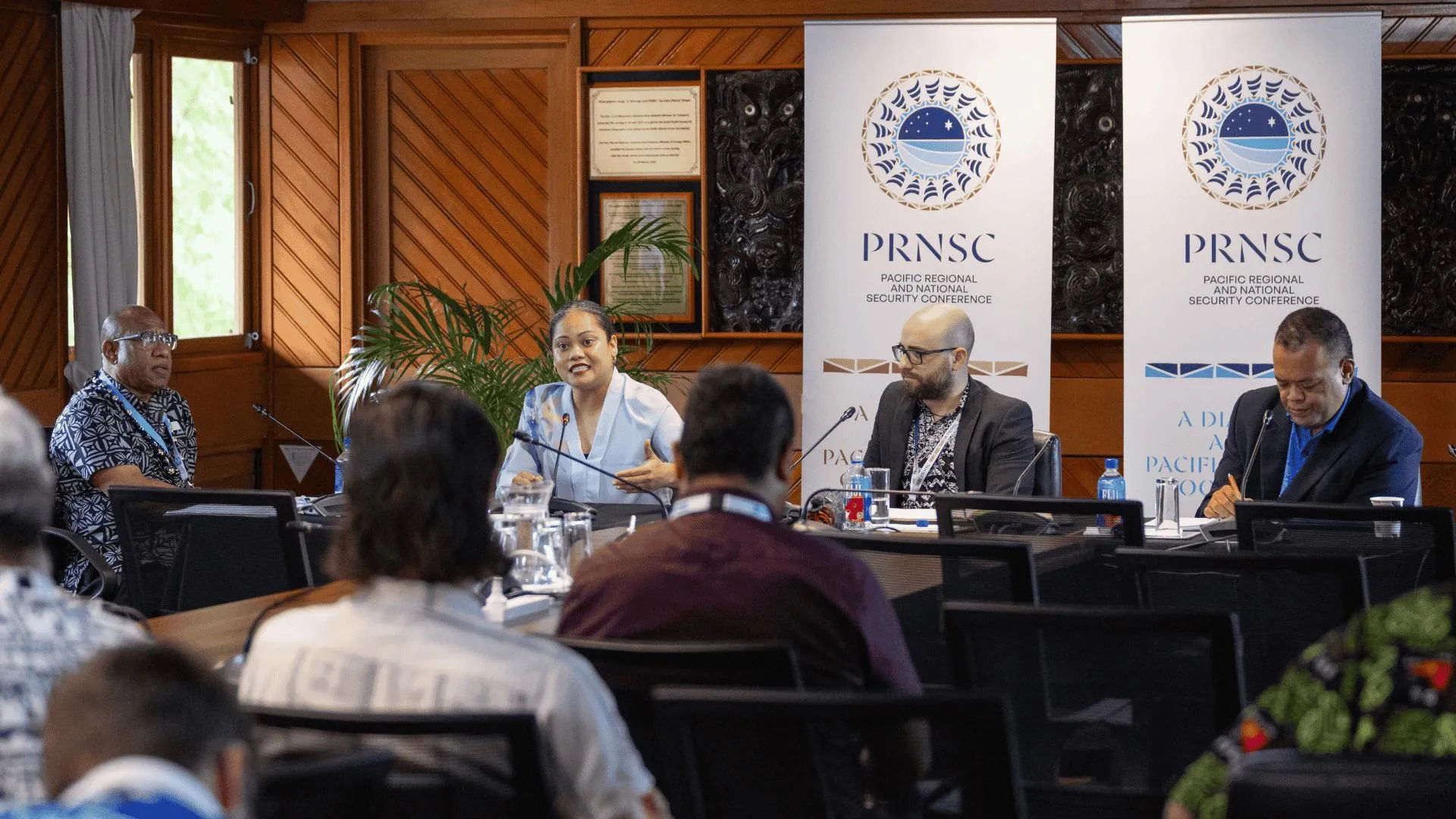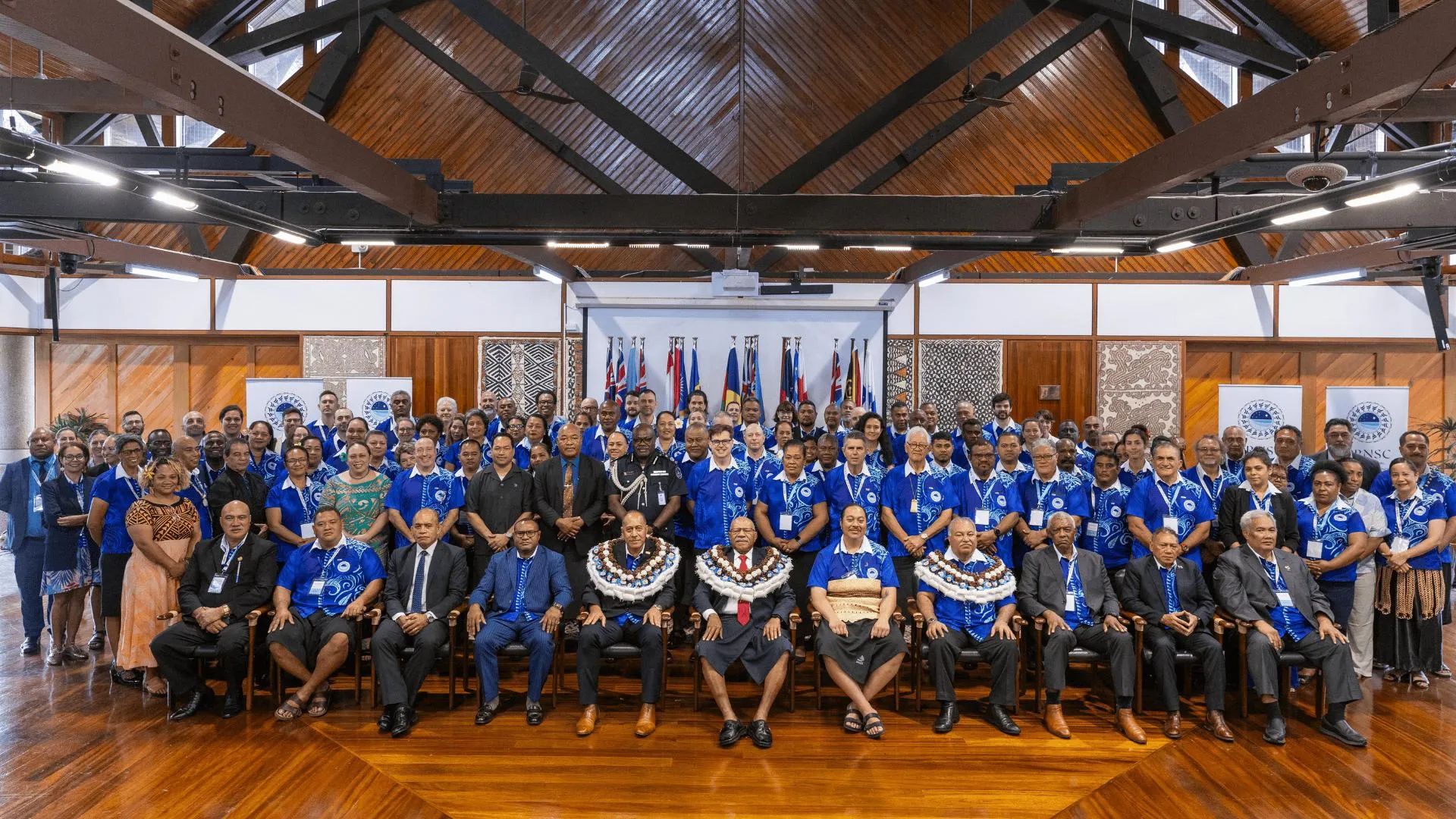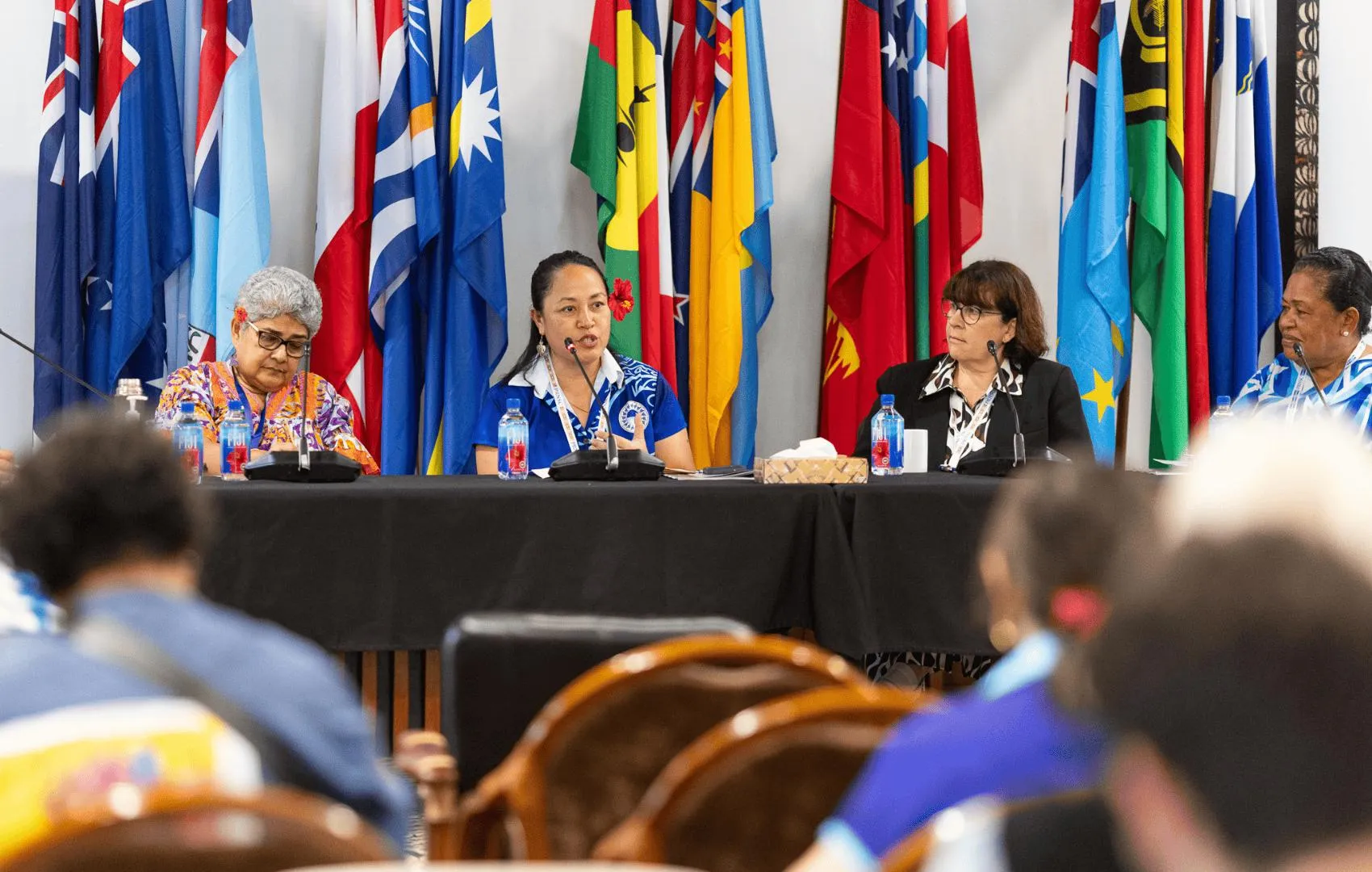‘Design with foresight’: Pacific urged to embed cybersecurity in all digital development

Ms Tupou’tuah Baravilala, Mr Matthew Watson, and Mr Savenaca Siwatibau at the Technology: the promise and the peril panel, moderated by Associate Professor Henry Ivarature at the Pacific Regional and National Security Conference.
Cybersecurity must be embedded from the ground up if the Pacific is to harness the promise of technology while defending against its perils, regional experts told delegates at the Pacific Regional and National Security Conference.
During the Technology: the promise and the peril session, experts emphasised the urgent need for digital transformation that is safe, inclusive and resilient and framed within the region’s collective ambitions under the 2050 Strategy for the Blue Pacific Continent and the Boe Declaration on Regional Security.
“One of the key priorities for Government is to ensure that we provide meaningful and secure connectivity to our people so that they can utilise technology in a way that empowers their lives and raises their livelihoods,” said Tupou’tuah Baravilala, Director-General of Digital Government Transformation, Cybersecurity and Communications for Fiji. “At the same time, we must ensure they are equipped with the knowledge, tools, and the skill sets to be able to safely navigate these online spaces.”
Ms Baravilala noted that the Pacific’s relatively fresh digital landscape means countries have an opportunity to design with foresight.
“There’s a lot that we’re doing in terms of digital transformation, where technology is playing a crucial component to be able to allow us to leapfrog, and I think it is definitely an opportunity for the Pacific. We don’t have that issue of legacy infrastructure that other developed countries have,” she said.
Ms Baravilala said it was crucial to instill strong cyber security practices and pointed to data from Microsoft that indicates basic cyber hygiene protects against 99% of cyber attacks.
“The opportunity for our region is, as we’re beginning our digital transformation journeys, we need to adopt cyber security-by-design and data-protection-by-design approaches, ensure the integrity of our supply chain, ensure a robust talent pipeline, and inculcate a culture of cyber hygiene in our communities and businesses.”
Matthew Watson, UNODC’s Regional Adviser for Transnational Organised Crime and Cybercrime, said one of the most impactful changes technology is having in society is the access to perceived truth, what people see online, and how they interact online.
“We could all go on Facebook collectively while in the same room, and we won’t all see the exact same thing,” he said. “Whether it’s due to various algorithms, AI-generated content, or differing interests, we’re all getting a different story and a different view. That’s huge for society. For better and for worse.”
Mr Watson said while it was fantastic that people could access so much information easily from their devices, it is difficult for governments, counterparts, and police to manage the threat of misinformation and ensure that citizens are aware of the dangers of that.
“We need to make sure that citizens, children, and adults have an awareness of the problems caused by digital illiteracy and misinformation. This must be embedded at an educational level.”
The panel discussed the rise in cyber attacks and threats in the Pacific that pose risks to both governments, institutions and individuals.
Manager of Fiji’s Critical Infrastructure Cyber Security Unit, Savenaca Siwatibau, said a lot of users in Fiji were falling victim to online scams and cyber crimes, and that government and policymakers needed to ensure users were protected, including by building digital literacy in schools and in the wider community.
“Fiji has increased its connectivity threshold to 96% because the community is starting to see the benefits of technology. Now the big issue here is, how can government protect this community?
“We need to ensure that we have the right policies, the right legislation and the technical capability to be able to strengthen the security of those that use these platforms.”
Mr Siwatibau said strong cyber security practices needed to be incorporated across government, legislation, and policy, right down to grassroot level.
“That is the only way that we can ensure that we are providing a safer environment that People can thrive on in the use of technology.”
Speakers noted that action on cybersecurity directly aligns with Pillar 3 (Peace and Security) of the 2050 Strategy and the Boe Declaration’s call for collective action against emerging security threats such as cybercrime, technological disruptions, and information warfare.
The panel called for:
- stronger cybercrime legislation aligned with frameworks such as the Budapest Convention,
- cross-border collaboration among Pacific Island Countries,
- investment in digital literacy, cyber infrastructure, and a local cybersecurity talent pipeline,
- and recognition of cybersecurity as both a development and security priority.
Participants also stressed that these efforts must be guided by Pacific values and tailored to local realities, reinforcing regional digital resilience as a key enabler of sustainable development, sovereignty and security.


